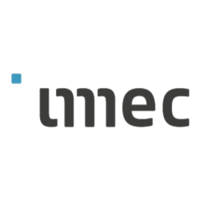
27 Jun Postdoc – Development of EUV-based Coherent Diffractive Imaging for Nanoscale Device Inspection
Postdoc Development of EUV-based coherent diffractive imaging for nanoscale device inspection
Research & development · Leuven, Belgium · Full time
The semiconductor industry relies on quantitative nanoscale imaging to inspect devices and components. This project will develop non-destructive, quantitative coherent diffraction imaging techniques compatible with modern and future semiconductor device architectures.
What you will do
The semiconductor industry routinely relies on nanoscale imaging methodologies for inspection and characterization of nanoscale features in devices and components. However, many of these metrologies are destructive, compatible with a limited sample set, or provide little or no chemical characterization. Extreme ultraviolet (EUV) coherent diffractive imaging (CDI) is a new approach for nanoscale imaging that utilizes diffraction patterns obtained from an impinging photo beam to reconstruct images of a sample via phase retrieval algorithms and is compatible with a diverse sample set. CDI is non-destructive and, when performed with EUV light, can yield nanoscale, chemically specific images of transmissive and reflective samples (e.g., thin films/2D materials and device stacks, respectively).
Imec’s AttoLab is a state-of-the-art metrology laboratory equipped with bright, coherent, tabletop sources which, working on the high harmonic generation (HHG) principle, emit attosecond pulses of tunable EUV light (56-10.3 nm). These sources will be used for performing CDI experiments in both reflection and transmission geometries, with achievable image resolutions of a few 10’s of nm (lateral) and sub-nm (axial). In addition to standard CDI geometries, this project will explore advanced CDI techniques such as ptychographic CDI and CDI coupled with reflectometry for quantitative chemical imaging with a large field of view.
The grand challenge of coherent diffractive inspection is the reconstruction of the image from the diffraction patterns and due to the complexity of this process the main focus of this project will be on algorithm development using multithreading GPU processing and machining learning. Additionally, the immense versatility of the HHG EUV sources enables unexplored imaging modalities such as structured illumination CDI, single pixel detection, and time-resolved CDI with few-nm and few-femtosecond spatiotemporal resolution, each of which comes with a dedicated set of development needs. The results of this work will not only provide a yet-to-be-realized metrology pipeline for the semiconductor industry, but also pave the way for non-destructive, quantitative, nanoscale imaging of semiconductor components and devices, while also informing design strategy for device optimization.
Supervisor: Claudia Fleischmann
Co-supervisor: John Petersen
What we do for you
We offer you the opportunity to join one of the world’s premier research centers in nanotechnology at its headquarters in Leuven, Belgium. With your talent, passion and expertise, you’ll become part of a team that makes the impossible possible. Together, we shape the technology that will determine the society of tomorrow.
We are proud of our open, multicultural, and informal working environment with ample possibilities to take initiative and to show responsibility. We commit to supporting and guiding you in this process; not only with words but also with tangible actions. Through imec.academy, ‘our corporate university’, we actively invest in your development to further your technical and personal growth.
We are aware that your valuable contribution makes imec a top player in its field. Your energy and commitment are therefore appreciated by means of a competitive salary.
Who you are
We are seeking an outstanding candidate with enthusiasm for a mix of experimental and computational imaging science, with a PhD degree in physics, applied mathematics, data science, or an equivalent specialization. The candidate should be able to work in an international environment and good written and oral communication skills in English are a prerequisite. Experience in experimental ultrafast optics, coherent imaging, and phase retrieval techniques is required.
- Motivation: Developing and realizing non-destructive, extreme ultraviolet, coherent diffractive imaging techniques suitable for semiconductor devices, interfaces, and materials.
- Type of work: 70% computation, 20% experimental, 10% literature
- Requirements: coherent imaging, algorithm-based image reconstruction
Please click here to apply.


Sorry, the comment form is closed at this time.